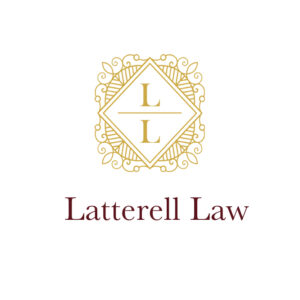Washington Estate Planning
for Special Needs
Virtual, Online Meetings
Washington Estate Planning
for Special Needs
Meeting in-person, audio & video conference
CALL NOW
206-678-0117
Advising You Step By Step
Advising You Step By Step
What Is A Special Needs Trust?
A special needs trust is a planning technique used when a will alone is not enough. A will is great at distributing property after you pass away. However, if you have a disabled beneficiary, or you are trying to protect assets from long term care expenses, a will is not enough. Instead, you should consider a special needs trust to protect your assets. If you fall into either of these two categories, a special needs trust can benefit you because:
-
- You can leave money to a special needs person without cutting off the government support they are receiving
- Ensure that your special needs child or family member is taken care of after you die
If you do not create a special needs trust in your estate plan, your child will lose all of their existing or future government benefits when they inherit. Don’t let your gift become a nightmare.
Note: I only work with Parents of Special Needs children

What Documents Can We Prepare?
What Documents Can We Prepare?

Foundational Documents
A Will
Financial Power Of Attorney
Medical Power Of Attorney
A Living Will (also called an Advanced Directive)
Last Wishes

Living Trusts
Irrevocable Trusts and Revocable Trusts
Asset Protection Trusts
Real Estate Trusts
Special Needs Trusts
Educational Trusts or Student Fund Trusts
Pet & Gun (NFA) Trusts

Asset Protection
Asset protection is a critical aspect of estate planning, designed to safeguard your wealth from creditors, lawsuits, and unforeseen financial risks. By implementing effective legal strategies, you can preserve your assets for future generations while maintaining control over how they are distributed. With proper asset protection, your legacy remains secure, no matter what challenges arise.
Angel M. Latterell, ESQ
Estate Planning Attorney
Advising You Step By Step!
I’m Attorney Angel Latterell. I’ve lived in Washington 20+ years and have 22+ years experience as an attorney.
My planning approach is like an architect designing a custom home for my clients. In our meeting, we will create a “blueprint” together for your custom estate plan that has the features and benefits you request and need. Then, once we finish the design of your estate plan, I will create an estate plan like a contractor, building it step by step.


Angel M. Latterell, ESQ
Estate Planning Attorney
Advising You Step By Step!
I’m Attorney Angel Latterell. I’ve lived in Washington 20+ years and have 22+ years experience as an attorney.
My planning approach is like an architect designing a custom home for my clients. In our meeting, we will create a “blueprint” together for your custom estate plan that has the features and benefits you request and need. Then, once we finish the design of your estate plan, I will create an estate plan like a contractor, building it step by step.
Would you rather talk with an attorney before scheduling?
Request A Callback
Would you rather talk with an attorney before scheduling?
Request A Callback

"*" indicates required fields
Questions Your Attorney Will Ask You…
Questions Your Attorney Will Ask You…
✅ What’s the government program you want to qualify for? ⏹ SSDI; ⏹ Medicaid; ⏹ Other State/Community-based programs that help pay for people’s needs.
✅ List of Assets, including approximate value – if you have investment assets, please bring a recent statement from the brokerage house that holds the assets
✅ List of names, addresses, and phone numbers for those to whom you plan on leaving assets in a will – usually this is children, relatives, or even charities
✅ A copy of the deed to any real estate you own – if you can find it
✅ Decide who you want to use as your agent under a power of attorney, and that person’s name, address, and phone number, if not included above
✅ Decide who you want to be in charge of distributing your assets upon your death, including that person’s name, address, and phone number, if not included above

✅ What’s the government program you want to qualify for? ⏹ SSDI; ⏹ Medicaid; ⏹ Other State/Community-based programs that help pay for people’s needs.
✅ List of Assets, including approximate value – if you have investment assets, please bring a recent statement from the brokerage house that holds the assets
✅ A recent bank statement
✅ List of names, addresses, and phone numbers for those to whom you plan on leaving assets in a will – usually this is children, relatives, or even charities
✅ A copy of the deed to any real estate you own – if you can find it
✅ Decide who you want to use as your agent under a power of attorney, and that person’s name, address, and phone number, if not included above
✅ Decide who you want to be in charge of distributing your assets upon your death, including that person’s name, address, and phone number, if not included above


